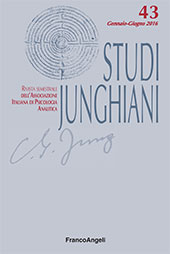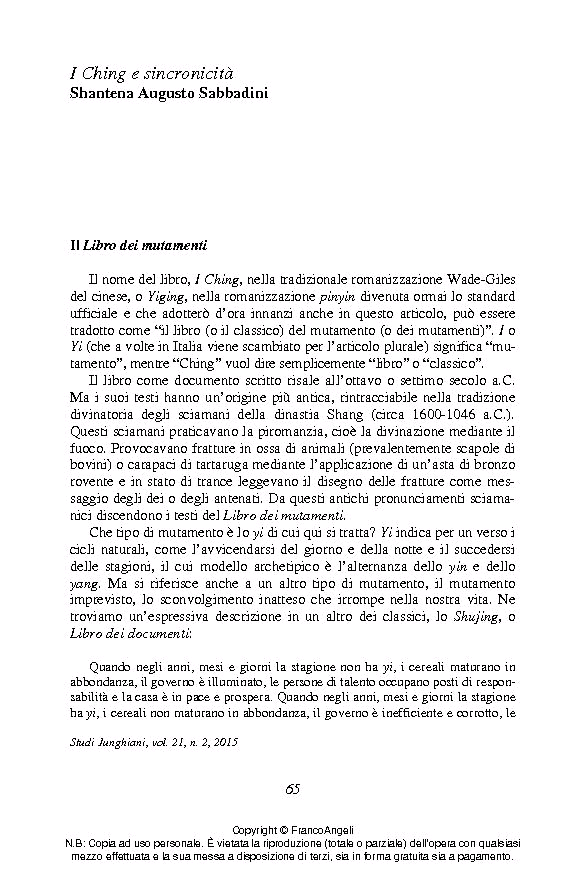I Ching e sincronicità
65-83 p.
I Ching and synchronicity.
L'I Ching o Yijing è un antico libro oracolare cinese i cui testi hanno origine in pratiche sciamaniche della dinastia Shang (cca. 1600-1046 a.C.). Questi testi sono organizzati mediante sessantaquattro esagrammi, segni composti da sei linee intere o spezzate, che corrispondono rispettivamente allo yang e allo yin. Il libro congiunge perciò due prospettive complementari sulla realtà, quella intuitiva e immaginale della trance sciamanica e quella strutturata e razionale della filosofia yin-yang. Per i cinesi antichi esso costituiva una mappa di "cielo e terra", cioè della totalità dell'esistente. Come in molte altre forme di divinazione, la consultazione dell'oracolo si compie mediante una procedura casuale, il che corrisponde a un atteggiamento mentale profondamente diverso nei confronti di ciò che noi chiamiamo "caso". A questo diverso atteggiamento Jung ha dato il nome di "sincronicità", un concetto che ha dibattuto in profondità nella corrispondenza con Wolfgang Pauli. Dopo una breve discussione del concet
to di sincronicità basata sulla suddetta corrispondenza, il presente articolo traccia la storia dell'Yijing dalle origini fino alla sua attuale diffusione in Occidente, con particolare riguardo agli studi realizzati a Eranos, a cui l'autore ha partecipato direttamente. [Testo dell'editore].
The I Ching or Yijing is an ancient Chinese oracular book whose texts have their origin in shamanic divination practices of the Shang dynasty (ca. 1600-1046 B.C.). These texts are organized in terms of sixty-four hexagrams, graphs consisting of six whole or broken lines, corresponding respectively to yang and yin. Therefore the book is a bridge between two different perspectives on reality, the intuitive and imaginal approach of shamanic trance and the structured and rational approach of yin-yang philosophy. For the ancient Chinese the Yijing was a map of "heaven and earth", i.e. of the totality of existence. As in many other forms of divination, the consultation relies on a random procedure, which points to a very different mental attitude towards what we call "chance". Jung has called this attitude "synchronicity", a topic examined in depth in his correspondence with Wolfgang Pauli. After a brief discussion of the concept of synchronicity based on the above correspondence, the article traces the history of.
the Yijing from its origins to its present diffusion in the West, paying special attention to the studies realized at Eranos, in which the author has been personally involved. [Publisher's Text].
-
Articles from the same issue (available individually)
-
Information
ISSN: 1971-8411
DISCIPLINES
KEYWORDS
- I Ching, Yijing, divinazione, sincronicità, Jung, Pauli, Eranos



